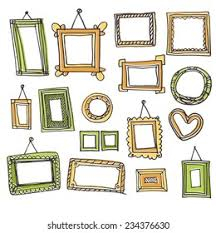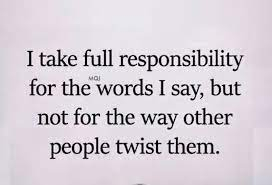Considering others or diminishing your light?
 person
Don't believe everything you thinkThe liminal space Veteran
person
Don't believe everything you thinkThe liminal space Veteran
From another thread:
If one can not even understand how a discussion on one's spiritual experience can make others suffer, then what does that say about that speaker's understanding of empathy, sympathy, tenderness or compassion for others.
There is talk today about how its important to look beyond our intent to the impact our words have on others. But when does that cross over into diminishing yourself and can that act also have a negative impact? My thought immediately went to the Marianne Williamson quote.
“Our deepest fear is not that we are inadequate. Our deepest fear is that we are powerful beyond measure. It is our light, not our darkness that most frightens us. We ask ourselves, 'Who am I to be brilliant, gorgeous, talented, fabulous?' Actually, who are you not to be? You are a child of God. Your playing small does not serve the world. There is nothing enlightened about shrinking so that other people won't feel insecure around you. We are all meant to shine, as children do. We were born to make manifest the glory of God that is within us. It's not just in some of us; it's in everyone. And as we let our own light shine, we unconsciously give other people permission to do the same. As we are liberated from our own fear, our presence automatically liberates others.”
I feel there is some balance to be found here. Don't brag on yourself, but also don't hide your light. Your spiritual experiences might make some feel small but it also might inspire others. How responsible exactly are we for the feelings of the most wounded person in the room?




Comments
Interesting question...
It's a case of "Words can please some of the people some of the time, but not all of the people all of the time" ....no matter how careful one is with choosing what to says....
One person's kind words is another person's fighting talk (No pun intended...Hmm perhaps just a little one )
)
As @Shoshin1 mentions:
Sometimes we have to tip, present distortion in ourselves, create impact, lighten, close down. Giving an impression of malleability, flippancy or absolutism. Varies.
Balance is something we are invoking in others (more so in Mahayana) not always the little wheel of self interest.
The more mature practitioners among us are already well-pickled in words and experiences, yet are not exactly enlightened. So are we such great exemplars? Shine your light, but do so with humility and while leaving the space for others to shine theirs, and appreciate all equally.
Why do you say initially? Are these qualities to be moved beyond at some point?
Agreed, cater your words to your audience. I don't think you should abandon any of the above to do so.
I don't know. It comes across as being somewhat condescending and if when your spin is discovered you lose credibility, people stop listening to what you have to say. Not that I don't ever do it.
Edit: I feel this needs some explanation. At some level this kind of speech assumes you're in the "evolved" position and that the recipient wouldn't come to the same conclusion as you if you presented your view directly so you need to manipulate them in some way to convince them. Its speech with an agenda rather than honest communication.
But I guess I draw a fine line between adjusting language so you can be heard and understood and being dishonest. And I'm sure I cross that line at times, writing it out though I guess that I'm opposed to what I think I'm hearing you say as a legitimate form of communication.
Not sure what you mean.
Credibility, reputation and people who wish to apply equality to ignorance and skilful means are lying to themselves and not listening, even to what they know …
So discernment and self appraisal is where we nudge the bulk of everyones efforts.
All qualities and attachments are moved beyond. Next stop Buddha killing.
https://www.lionsroar.com/if-you-meet-the-buddha-on-the-road-kill-him/
I have been exploring a few realms of information regarding the topic at hand. This article wrapped it up nicely.
A few lines I enjoyed the most.
Spending time in the Tibetan tradition I did see plenty of skillful means being implemented, and that is what I'd say is adjusting language to meet the recipient. I also saw people having certainty in their position, which after initially trusting later found to be either wrong or simply opinion presented as fact. It caused me to lose trust in what was being presented on the whole. So the attempt at skillful means in the long run ended up being unskillful. I do think honesty is better.
"It ain’t what you don’t know that gets you into trouble. It’s what you know for sure that just ain’t so." ~maybe Mark Twain
Attachment to them. We're not meant to literally kill the Buddha.
Agreed, and the inverse applies as well. People have to come to truths on their own, trying to skillfully bend them to seeing the world the way you think they should isn't the way.
I think maybe this is a truth I'm trying to come to grips with myself.
I believe if the skillful means and recipient were in a bubble, the implementation of various methods would have a potentially more successful outcome. However we are in a dynamic world full of many views and many skillful and unskillful means circulating about knowing and unknowing to various depths. It is confusing and fragmented enough as is. We may not always be able to discern the wheat from the chaff. Of course this is simply my single perspective.
Yeah, I think that is generally how it goes among distinct populations, or information bubbles. My experience was one of diving into that tradition at a fairly young and inexperienced age, accepting the views, and there was guidance and progress. I then left more out of a decline in motivation and opportunity than a loss of trust. When I came back more than a decade later I had gained ideas and insight from other sources so when I again received teachings I had ideas to compare against and a more questioning mind. This is when I found many teachings that might be described as skillful means more opinion dressed up as fact, sometimes with moral or karmic threat attached. I still find much to be admired and gained in the Tibetan teachings, its more the application from some of its teachers that I had an aversion to. Ultimately leading to me leaving that tradition.
I think this is where I am right now (take a look at my avatar picture). Having read and listened to a variety of not only spiritual traditions but political and cultural as well. I find many of the same arguments dressed up in different words directed from one realm towards the other then the nearly identical phrasing posed in the opposite direction. My conclusion is that many "facts" are mostly values and opinions coming from a particular point of view dressed up as "the one true view" rather than an individual perspective. Most ideas of what is right and true come down to who's ox is being gored rather than any attempt at some sort of synthesis or transcendent view.
Edit: For example take the personality trait spectrum of neuroticism<->emotional stability. They both have important value to the human experience, neuroticism warns us of dangers and harms, emotional stability allows us to effectively move and progress in the world. Just like introversion<->extroversion people fall somewhere along that spectrum but both have merits and pitfalls. In our fractured bubble world people of one sort or the other clump together and develop views that highlight and strengthen their point of view, which is actually good. But then certainty of ones perspective as primary develops and a characterization of an emotionally stable point of view as being bad or evil along with it and all the modern insanity ensues.
From what I gather ( I've been known to gather many things ...including dust )....At times when first hearing/reading what's been said , one might misinterpret it and take offence, That's not right...How dear they say that... but later on there may come a realisation that what's been said is pointing to the truth of the situation (bearing in mind words are not the truth, they are tools which can only point to the truth or its opposite)....
)....At times when first hearing/reading what's been said , one might misinterpret it and take offence, That's not right...How dear they say that... but later on there may come a realisation that what's been said is pointing to the truth of the situation (bearing in mind words are not the truth, they are tools which can only point to the truth or its opposite)....
Also at times an unsettled/disturbed mind may be looking/itching for a fight, so will continue to twist the words/truth to suit the mood...
I guess it all depends on the frame of mind of the hearer/reader

...as to what reaction the words produce...
When all is said and done....

I like this quote, I think it highlights much of my disagreeableness around this topic. When the standard is the intention of the speaker there is some sort of obligation on their part to have a good intention, and if not then its justified in calling them out or holding them accountable.
In a world where impact is the standard I'm thinking there needs to be some sort of obligation for good faith on the part of the recipient. Without it anyone is free to practice predatory listening and turn offense taking into an art form without any ability for accountability on their end.
LOL
The way we twist ourselves into being right and not bubbled means our responsibility for others is only in how it reflects.
And if others reflect well, that is our credit. If badly their fault. Is that it? We are always right? Or is that wrong …
May have to give up thinking. Too complicated …
I wouldn't say that's the way forward. I also wouldn't say the opposite is right either. Where no matter what you say or how you say it, if the recipient says they're offended, irregardless of good faith on their part, or even maybe a traumatized person listening to something intended for a general audience, then the speaker is in the wrong.
I'm saying responsibility should run in both directions.
I think my job as an aspiring meditator is to try to live in such a way that my tendencies towards the binge feeding of my ego are not encouraged. The degree to which I can succeed in this job function seems to be the same degree to which the world of egos around me also start to restrain their engorgements.
Here, the illusions of a self, and others, can start finding some resolution along the path towards suffering's cessation.
When a conflict arises within me, I already know seeking others to fix it will do no lasting good. The solution must come from within. We are all observers, investigators, and scientists after all!
What use is dwelling on the end result of the experience when the result itself is a trailhead ripe with potential adventure into understanding our own psyche! Who doesn't want that? Understanding our minds more clearly allows us to see the layers in which we have yet to pull back.
When I maintain a mindset of excitement and intrigue around conflicts within me, investigating them can be as fun as my favorite hobby. In resolving them, they tend to not arise often after that.
One less distraction!
Ah ha!
No self. No other.
I gets it! (I iz so zen)